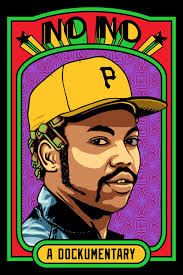Podcast of the Week: WTF with Marc Maron
As soon as I became aware that podcasts were really, truly a thing -- which was last spring at the Transom workshop -- I heard about WTF with Marc Maron. It's a true podcast -- not a radio show and definitely not a public radio show. But when people were talking about their favorite podcasts, this one came up a lot.
I've hesitated to listen to it, not because I didn't think I would like it. I liked the bits I've heard of Maron (like his great segment on this This American Life episode about drugs -- by the way that whole episode is worth listening to). But I resisted listening to this podcast. Because it is really long. Really, really long. Like an hour and a half long. That's a commitment.
Recently, though, I gave it a try and what do you know -- everyone is right. Maron is great. He's like a funny, profane therapist or life coach. He's like that guy you knew in college or your friend's older brother, who could be kind of an asshole (see, the profanity is already influencing me!) but was also a guy you know you could call if you were in trouble. I liked listening to him talk for 90 minutes, though it wasn't all him -- a lot of his podcast is his guests talking.
Those guests are generally people from the entertainment world: comedians, actors, musicians. But they're talking about their lives. The first one I listened to was the episode with Allie Brosh, because I love her blog and book, Hyperbole and a Half. But the one I probably enjoyed the most was the recent one with Julia Sweeney. I always liked her but never knew a lot of detail about her life, other than that she'd dealt with some extremely bad stuff after her short stint on Saturday Night Live. She was fantastic -- funny, smart, kind, candid. She and Maron do different things and have had very different career arcs but connected just enough to have a great conversation -- it was like eavesdropping on the most interesting party conversation ever. I can't say I'll be listening to every WTF episode. There are just too many of them and they are too long. I have a lot of comic book-based TV shows to keep up with! But I'll be listening regularly. You should, too, or at least give it a try.
Podcast Press
Serial continues to occupy a lot of this space. For example,
- Variety has something of a contrarian take on the "Serial changes everything when it comes to podcasting" narrative.
- CNNMoney begs to differ -- they see Serial paving the way for profitable podcasting.
- Just in time for the holidays, the perfect gift for the Serial-obsessed. This makes me queasy, but I guess it's more about the overall program rather than a single murder case.
In non-Serial podcast press:
- NPR gets on the "podcasts are big business" bandwagon. I guess they had to.
- If you are feeling entrepreneurial, Entrepreneur magazine has these recommendations for podcasts you should be listening to.
- Upstart Business Journal says "podcasting is the new sexy for entrepreneurs"!
- A piece about the current golden age of comedy podcasting -- and it's from my alma mater, the Massachusetts Daily Collegian!! Woo-hoo!!!!
- Networkworld recommends podcasts that "you, as a member of the digerati, should be following." So there.
- The Guardian has a radio critic and she reviews podcasts, among other things.




